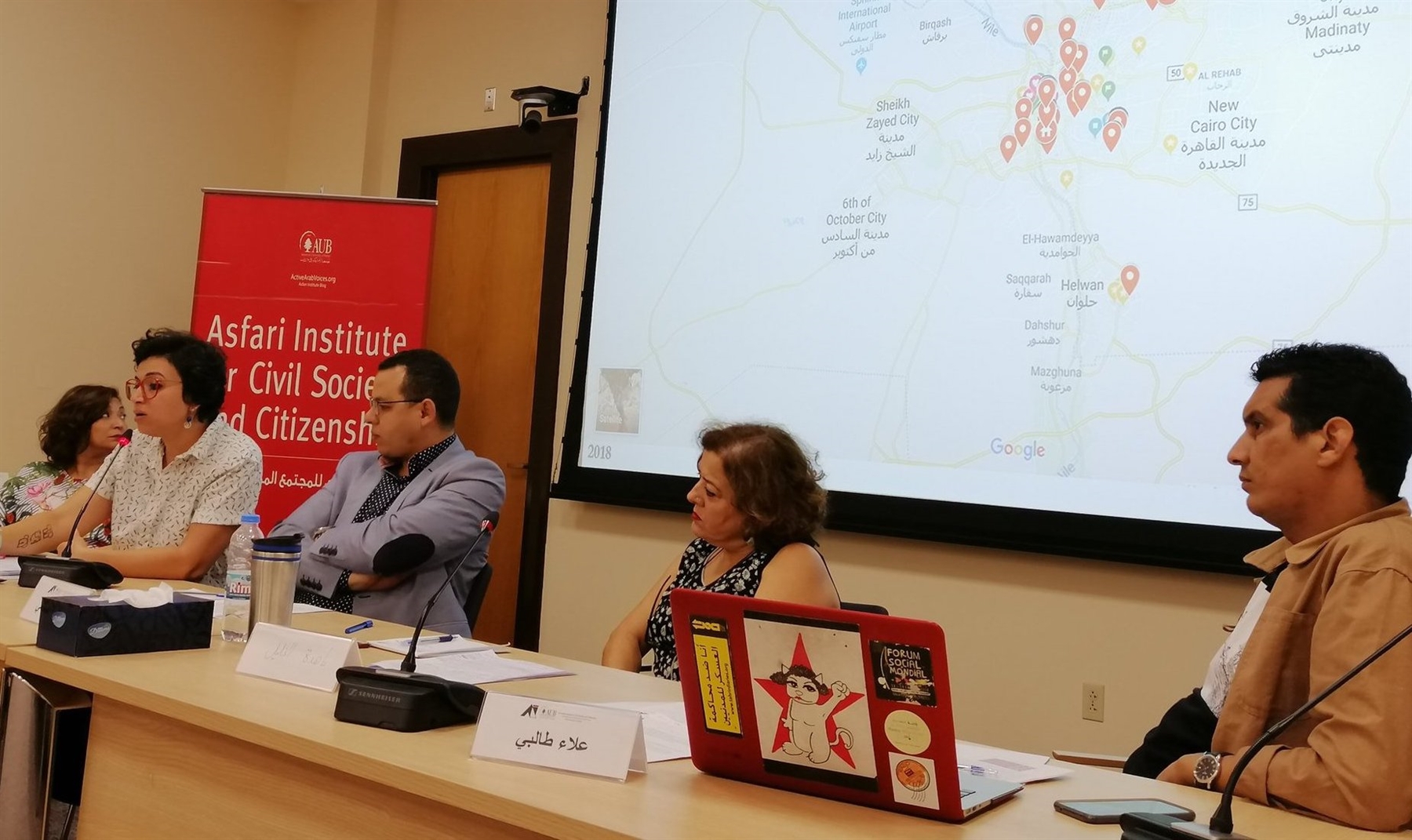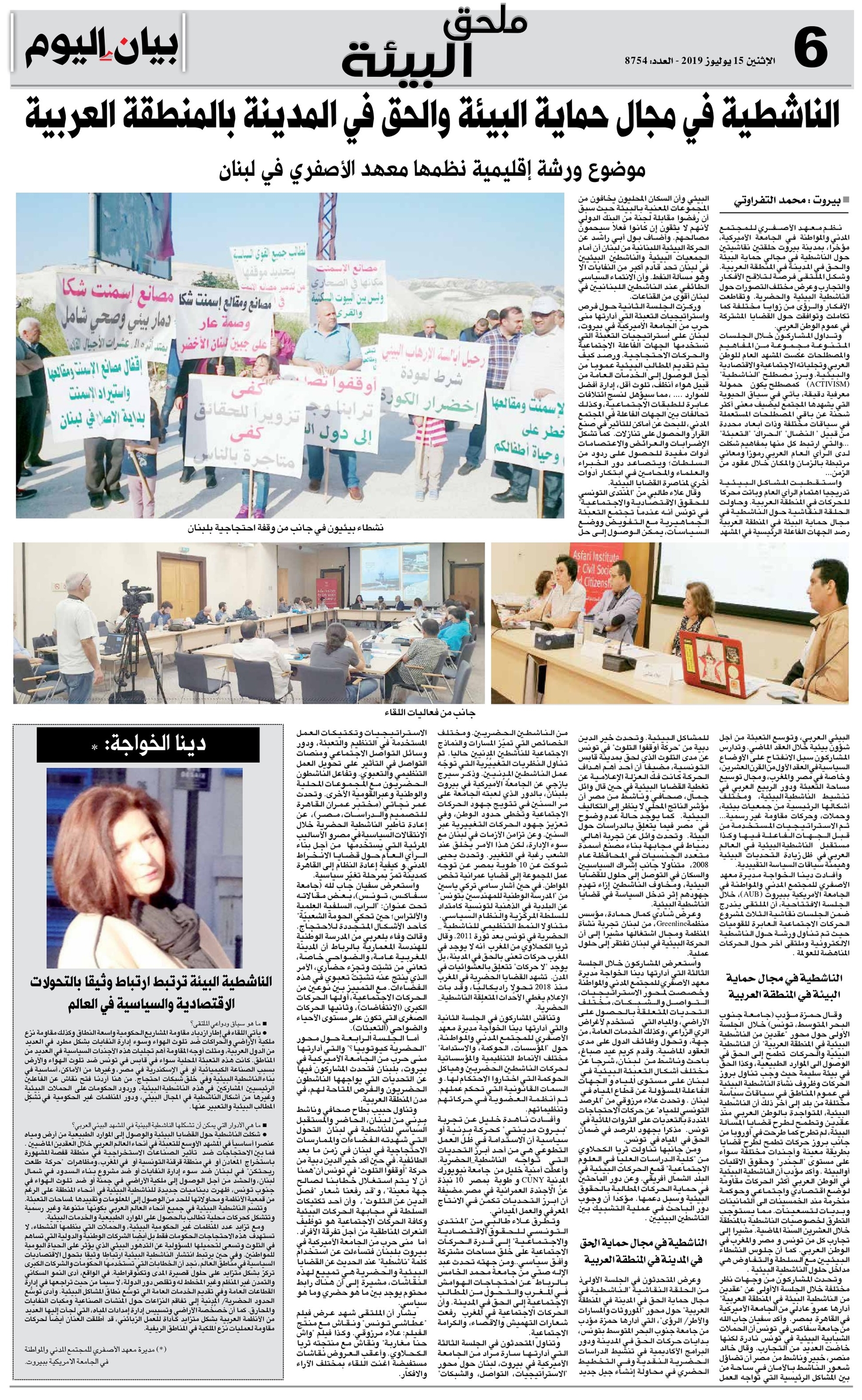Urban Activism in the Arab Region

The "Urban Rights Activism” workshop held on July 4, 2019, gathered about thirty academics and activists from Tunisia, Morocco, Egypt, and Lebanon who discussed i) the histories and legacies of urban activism, the actors engaged in urban rights activism, their organizational and institutional setups, ii) their frames and strategies of action, as their communication and networks, and iii) the urban as an opportunity for providing “real utopias” for activism and political change.
×
The workshop was organized in four sessions to debate the above themes. The first two sessions interrogated the legacies, trajectories, frames and visions of urban activism, as well as at their institutions, governance and sustainability. Contributors were asked to reflect on the below set of questions:
- What are the legacies and origins of right-to-the-city movements? What is the role, if any, of academic programs in critical urban studies/planning/design in setting up a new generation of urban activists? What particularities, if any, characterize the trajectories and sociological profiles of today’s urban activists? What frames of action/visions/theories of change guide urban activists' work: are these academic, pragmatic, and/or utopian?
- What are the organizational and institutional setups of urban activists’ movements and collectives? What governance structures did they opt for, and what legal features govern their work? What are their membership systems? Did they draft by-laws and how? How do they hold their members accountable for their acts? What are their sources of financing, and what administrative and financial challenges do they face to sustain their action?
The third session explored strategies, communication and networks through these interrogations:
- What strategies and tactics of work are used for organizing and mobilization, and which ones are most/least successful? What is the role of social media and communication platforms, and how do they enable/transform organizational/mobilization work? Do urban activists interact with/learn from other local, national, and transnational groups; if yes, which, how and why; if not: why not? What are the challenges of outreaching, building networks and forging connections across places?
The fourth and final session was organized as a roundtable discussion during which participants debated “the urban as a real utopia,” investigating the following queries:
- What challenges and opportunities can one identify for urban activists in cities of the Arab region? Are intra-group tensions threatening the consolidation of urban activists’ movements? Or are state policies repressive and co-opting enough to constrain their action? Is change from within or from without? Can the “urban” of urban activism be further built upon to enable mobilizations, given its ability to provide collective action with “real utopias”?

Coverage of the worshop by the Morrocan daily Al-bi'a, published on July 15, 2019